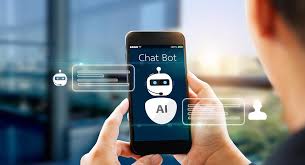In today’s fast-paced digital world, businesses are under increasing pressure to deliver quick, efficient, and personalized customer service. Customers no longer want to wait in long queues or send an email and hope for a response in days. They expect instant support—and this is where chatbots have become game-changers.
Chatbots are AI-powered tools that simulate human conversation through text or voice interactions. You’ve probably encountered them on websites, mobile apps, or even messaging platforms like WhatsApp and Facebook Messenger. But beyond being a trendy feature, chatbots are transforming the way businesses engage with customers.
1. 24/7 Availability
One of the most significant advantages of chatbots is their ability to provide round-the-clock support. Unlike human agents who work in shifts, chatbots never sleep. Whether it’s 2 p.m. or 2 a.m., customers can get their questions answered instantly. This builds trust and increases customer satisfaction, especially for global businesses serving multiple time zones.
For example, an e-commerce store can use a chatbot to handle order inquiries, product recommendations, and even refund requests any time of day—without making the customer wait until business hours.
2. Faster Response Times
Modern customers value speed over everything else. A chatbot can instantly respond to common queries like:
“Where is my order?”
“What are your pricing options?”
“How do I reset my password?”
By handling these repetitive questions, chatbots reduce wait times significantly. Instead of waiting 10–20 minutes to speak with a human agent, customers receive answers within seconds. This not only improves customer experience but also allows businesses to handle higher volumes of inquiries without additional staff.
3. Cost Savings for Businesses
Hiring, training, and managing customer service teams can be expensive. By automating routine conversations, chatbots reduce the need for large customer support teams.
According to a Juniper Research study, chatbots are projected to help businesses save over $8 billion annually by 2026. This makes them not just a customer service tool, but also a strategic investment in efficiency and cost reduction.
4. Personalized Customer Experiences
Advanced chatbots can integrate with customer relationship management (CRM) systems to access customer data. This allows them to provide personalized support by remembering past interactions, purchase history, and preferences.
For instance, a chatbot at a bank can greet you by name, check your last transactions, and even recommend savings plans tailored to your financial goals. This level of personalization makes customers feel valued and understood.
5. Reducing Human Workload
Customer service teams often get overwhelmed with repetitive questions. By automating FAQs and basic troubleshooting, chatbots free up human agents to focus on complex issues that require empathy and problem-solving skills.
This balance between automation and human interaction leads to more efficient operations and higher job satisfaction for employees.
6. Multichannel Support
Chatbots are not limited to websites. They can be deployed on social media platforms, messaging apps, and even voice assistants like Alexa or Google Assistant. This ensures businesses meet customers where they are, providing seamless support across multiple channels.
For example, an airline chatbot can help a customer book a ticket on the website, send a boarding pass through WhatsApp, and provide flight updates via SMS—all without human intervention.
Conclusion
Chatbots are no longer just a “nice-to-have” feature; they are becoming essential for businesses that want to remain competitive in today’s customer-centric world. By offering 24/7 support, faster responses, cost savings, personalization, and multichannel availability, chatbots significantly improve customer service.
While they can’t replace human empathy entirely, the combination of chatbot efficiency with human support for complex issues creates the perfect balance. As AI technology continues to evolve, we can expect chatbots to become even more advanced, intuitive, and impactful in shaping the future of customer experience.
✨ Key Takeaway: Chatbots aren’t replacing humans—they’re empowering businesses to provide faster, smarter, and more customer-friendly service.



